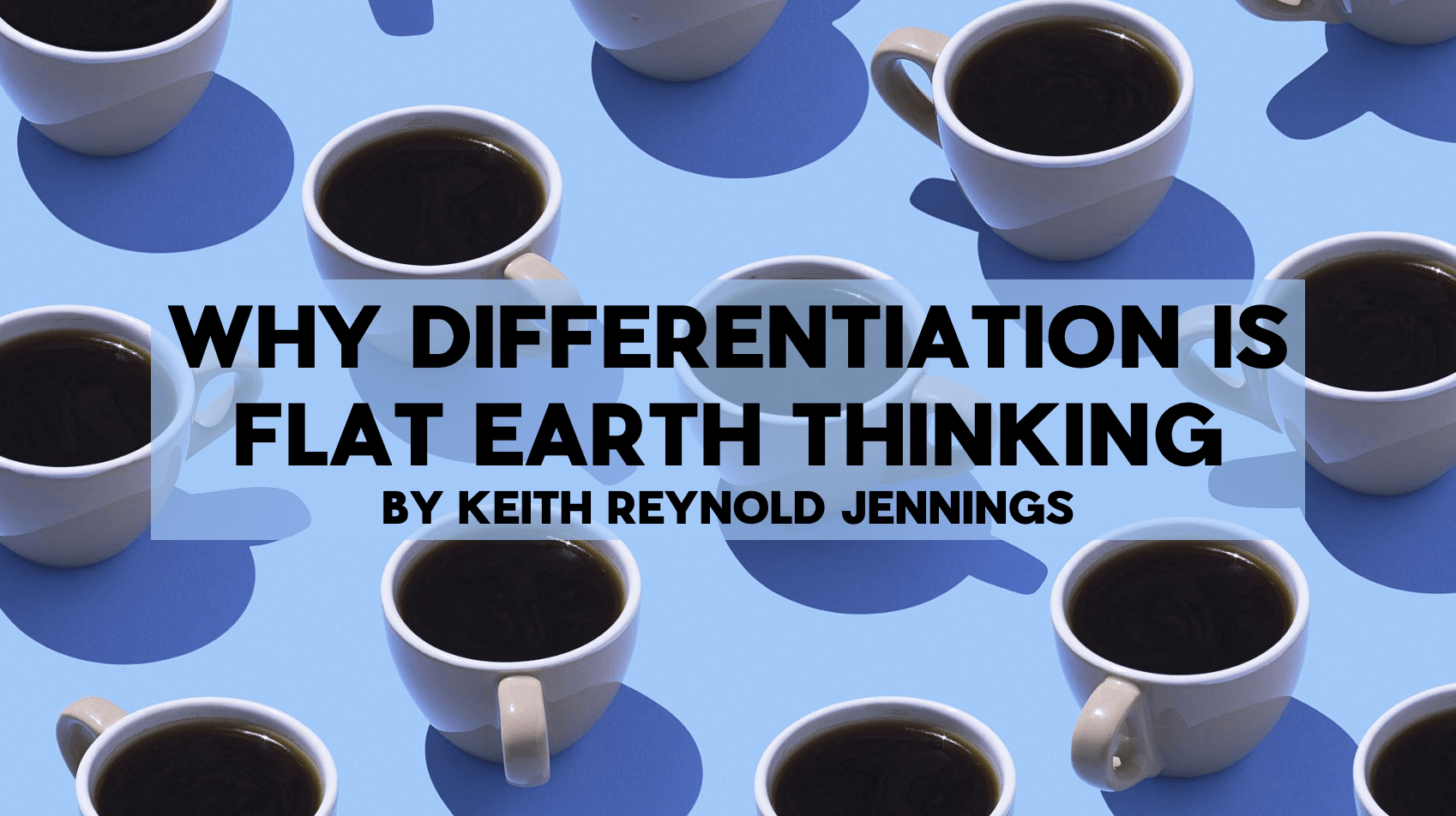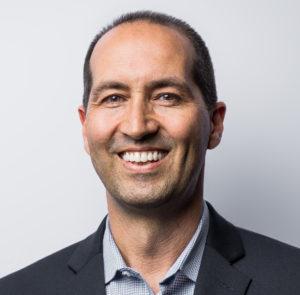
By Keith Reynold Jennings, {grow} Contributing Columnist
For ages, people believed the world was flat.
Then, thanks to mathematics and, ultimately, engineering, humanity discovered that the earth’s shape wasn’t what it appeared to be from where we’re standing.
In this post, I’ll argue that differentiation, a nearly 90-year-old pillar of marketing theory, appears to be relevant when looking at markets from the position of a seller. But as soon as you shift your position and see the world through the buyers’ eyes, differentiation no longer seems to matter. And it doesn’t explain why people buy what they buy, especially today.
The paradox of choice
I was recently in the market for a telescope.
My kids have shown a growing interest in what’s happening in the sky. We love running out to watch the International Space Station fly over. We love pointing out the planets and major constellations. And we love using apps to discover what’s happening up there.
The time finally came for us to take one small step from binoculars, one giant leap for our family!
When it comes to choosing a telescope, it’s overwhelming. There are reflector, refractor, and compound scopes. There are manual, motorized and computer-driven scopes. Then there’s aperture, focal length, and eyepiece considerations. And let’s not forget the mount! Is equatorial or alt-az better? Oh yeah, and what price should I expect to pay? They run from $100 to $30,000!
As I did my research, my brain started to melt. Every element of a telescope has dozens of differentiated choices. The paradox of choice started to set in and I could feel myself second-guessing any choice I made.
Thankfully, one of my co-workers is a long-time astronomer. He listened to me describe why I wanted a telescope and how I wanted something my kids could use. Within a few days, he recommended a $200 telescope that gave me all the primary functions I wanted for my kids (with free shipping!).
As a buyer, I wasn’t looking for the most unique telescope out there. They all were differentiated! I was looking for the telescope that had the most things in common with my family’s stargazing needs.
Take a second … think about the most recent significant purchase you made.
By “significant” I mean that you had to do some research and analysis before deciding to make the purchase and choose between the options you had.
Did you choose to buy the product or service based on how DIFFERENT it was from the other choices? Or did you choose the product or service that had the most in COMMON with who you are, what you wanted and what you were willing to pay?
The backstory on differentiation
Differentiation appears to have originated in a 1933 book on monopolistic competition by economist Edward Chamberlin. Other notable thought leaders touting the merits of differentiation have included Theodore Levitt, Michael Porter, and Costas Markides.
These guys are regarded as gods and gurus among the business and academic elite.
The core thread woven through their thinking on differentiation is that, in order to achieve a sustainable competitive advantage in a world of increasing commoditization and complexity, products, services, and brands MUST clearly communicate how they are unique and different from the other choices out there.
Different customers prefer different things. The job of strategy is to monopolize a niche in a way that eliminates the competition. Differentiation is the silver bullet to achieve this.
At this point, I hope you’re seeing that differentiation was/is a tool for competition. It offers little in the way of actually creating customers. (ht Peter Drucker)
The problem, according to Harvard Business Review author Freek Vermeulen, is that all these thought leaders touting differentiation were economists looking at the world through the lens of economic theory. In their view, for some to win, others must lose.
However, when I look at products and services as a buyer, I can’t see this to be true at all. For example, I am always in the market for discovering new music and genres. I’m never choosing one artist among the others. If I like their stuff, I’m streaming it. All of it!
If something brings value to me, if we share things in common, then I will choose to include it in my life. If not, I won’t. I’m not assessing choices based on their differences, I’m assessing them based on what they have in common with me and my needs.
But does this apply to B2B services such as SaaS or consulting?
Why differentiation could not save Michael Porter
In 2012, Monitor Group, the elite firm founded by strategy guru, Michael Porter, filed for bankruptcy.
How on earth did this happen to one of capitalism’s most renowned thought leaders on differentiation? Did his firm fail to differentiate? Of course, not.
According to Steve Denning, in a brilliantly written Forbes post, Porter’s firm simply failed to add value to clients. Naturally, clients stopped calling. “(Monitor Group) were numbers men looking for financial solutions to problems that required real-world answers,” he wrote.
In other words, business leaders continually need help innovating in order to bring increasing value to customers. They need consultants who best understand and align with this need. Monitor Group couldn’t even do that for themselves. Which led to the firm’s demise and acquisition by Deloitte in 2013.
Everything I’ve read about differentiation, throughout my career, is written from the perspective of the organization, business, brand, product or service. When you’re trying to sell something, any option besides your offering is a threat. And that threat commands attention.
However, when looking at marketing from the vantage point of the buyer, the only things that matter are:
- How well your offering helps the buyer get a functional, emotional and/or social job done in their lives,
- How well your company aligns with their personal values, and
- How well your pricing aligns with their expectations
Your competitive advantage isn’t dependent on your ability to differentiate — remember, we’re looking at this through the perspective of the buyer, not the seller — your competitive advantage is dependent on your ability to align with the values and needs of the buyer.
Buyers seek “Same As,” not “Different Than”
The earth looks flat when you’re moving around on it, but that doesn’t make it true. (ht Pythagoras)
If you want to get “invited to the island,” you have to respect and contribute to the community. And that’s the key word: community. Community is the holy grail of marketing and branding.
It’s not surprising that the root word in “community” is the word, “common.” Common means “same as,” “shared,” “alike.” I like to think of community as “common” + “unity.” That sure seems like a much bigger idea to me than “different than.”
As buyers, we’re looking for solutions, tools, and experiences that best align with who we are, what we value and what we’re trying to get done.
As marketers, the best advice seems to be simple: Stop obsessing over what competitors are doing. Start obsessing over what customers value and need.
If the world looks flat from your business’ position, it’s time to see things from the perspective of your customers. Welcome to the rebellion!

Keith Reynold Jennings is an executive and writer who serves as vice president of community impact for Jackson Healthcare. He’s also an advisor to goBeyondProfit. Connect with Keith on Twitter and Linkedin.


